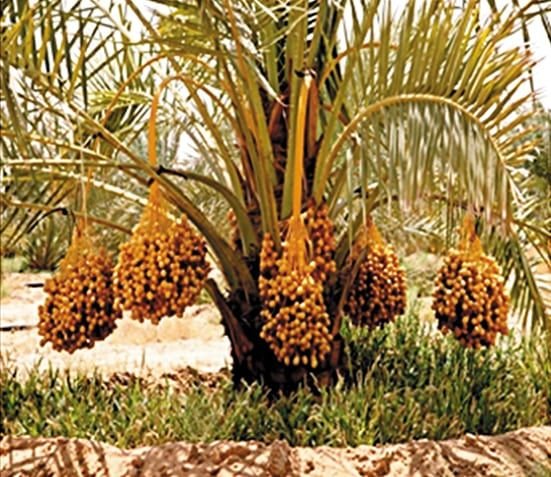“Stop the sun from setting today!” Sick of the arrogance of some American Ideologues
In The Name of Allah, The Most Merciful, The Bestower of Mercy.
Sick of the arrogance and vanity of some American Ideologues, Demagogues & Rabble Rousers: We demand from them: “Stop the sun from setting today or to rise from the West tomorrow if you are All-Powerful”
Allah, The Almighty, said:
فَأَمَّا عَادٌ فَٱسْتَكْبَرُوا۟ فِى ٱلْأَرْضِ بِغَيْرِ ٱلْحَقِّ وَقَالُوا۟ مَنْ أَشَدُّ مِنَّا قُوَّةً أَوَلَمْ يَرَوْا۟ أَنَّ ٱللَّهَ ٱلَّذِى خَلَقَهُمْ هُوَ أَشَدُّ مِنْهُمْ قُوَّةً وَكَانُوا۟ بِـَٔايَٰتِنَا يَجْحَدُونَ
As for ‘Ad, they were arrogant in the land without right, and they said: “Who is mightier than us in strength?” See they not that Allah, Who created them was mightier in strength than them. And they used to deny Our Ayat (proofs, evidences, verses, lessons, revelations, etc.)! [Fussilat 15]
Imam As-Sadi, may Allah have mercy upon him, said:
This is a detailed account of the story of the two nations, Aad and Thamud. As for Aad, they were arrogant in the earth, together with their disbelief in Allah, their denial of His signs, and their rejection of His messengers. They subdued those – the servants of Allah – around them, oppressed them and were self-amazed with their strength.
[وَقَالُوا۟ مَنْ أَشَدُّ مِنَّا قُوَّةً – They said: “Who is mightier than us in strength?”] In response, Allah reminded them of a fundamental truth known to all: [أَوَلَمْ يَرَوْا أَنَّ اللَّهَ الَّذِي خَلَقَهُمْ هُوَ أَشَدُّ مِنْهُمْ قُوَّةً – See they not that Allah, Who created them was mightier in strength than them]. If Allah did not create them, they would not have existed. Had they contemplated their situation in a correct manner, they would not have been deceived by their own power, thus, Allah punished them in a manner befitting the strength in which they had placed their misguided trust. [1]
Imam Al-Baghawi, may Allah have mercy upon him, said:
The statement of the Almighty: [فَأَمَّا عَادٌ فَٱسْتَكْبَرُوا۟ فِى ٱلْأَرْضِ بِغَيْرِ ٱلْحَقِّ وَقَالُوا۟ مَنْ أَشَدُّ مِنَّا قُوَّةً – As for Aad, they were arrogant in the land without right, and they said: “Who is mightier than us in strength?”] This was in response to Prophet Hud, peace be upon him, who warned them of impending punishment. They arrogantly claimed that their strength could protect them from such retribution, boasting of their tall and powerful physiques. In response, Allah said to them: [أَوَلَمْ يَرَوْا۟ أَنَّ ٱللَّهَ ٱلَّذِى خَلَقَهُمْ هُوَ أَشَدُّ مِنْهُمْ قُوَّةً وَكَانُوا۟ بِـَٔايَٰتِنَا يَجْحَدُونَ – See they not that Allah, Who created them was mightier in strength than them. And they used to deny Our Ayat (proofs, evidences, verses, lessons, revelations, etc.)] [2]
Imam Ibn Kathir, may Allah have mercy upon him, said:
Allah, The Exalted, said: [فَأَمَّا عَادٌ فَٱسْتَكْبَرُوا۟ فِى ٱلْأَرْضِ بِغَيْرِ ٱلْحَقِّ – As for Aad, they were arrogant in the land without right]- Meaning, rebellious, insolent and disobedient.
[وَقَالُوا۟ مَنْ أَشَدُّ مِنَّا قُوَّةً – They said: “Who is mightier than us in strength?] Meaning, believing that their physical strength and capabilities would protect them from Allah’s punishment. [أَوَلَمْ يَرَوْا۟ أَنَّ ٱللَّهَ ٱلَّذِى خَلَقَهُمْ هُوَ أَشَدُّ مِنْهُمْ قُوَّةً – – See they not that Allah, Who created them was mightier in strength than them]- Meaning, they did not reflect on the fact that Allah, who created them, is indeed stronger than they are! Did they not contemplate the One against whom they openly declared their enmity? For indeed, He (Allah) is Al-Adheem (Footnote a) who created all things and endowed them with the strength to exist, and His punishment is indeed severe. [3]
Imam Al-Qurtubi, may Allah have mercy upon him, said:
The statement of Allah, The Exalted:[فَأَمَّا عَادٌ فَٱسْتَكْبَرُوا۟ فِى ٱلْأَرْضِ – As for Aad, they were arrogant in the land] – without right – towards the servants of Allah, (towards) Prophet Hud, peace be upon him, and those who believed in him. [وَقَالُوا۟ مَنْ أَشَدُّ مِنَّا قُوَّةً – They said: “Who is mightier than us in strength?] They were deceived by their physical stature when faced with the threat of punishment, saying: “We are able to avert the punishment from ourselves by virtue of our strength”. This was due to their tall and mighty physiques. It has already been stated in the explanation of Surah Al-A’raf” (based on a report) by Ibn Abbas, may Allah be pleased with him and his father, that the tallest among them was one hundred cubits, while the shortest was sixty cubits. In response, Allah said to them: [أَوَلَمْ يَرَوْا۟ أَنَّ ٱللَّهَ ٱلَّذِى خَلَقَهُمْ هُوَ أَشَدُّ مِنْهُمْ قُوَّةً – See they not that Allah, Who created them was mightier in strength than them] and in ability, rather, the ability of a person is contingent upon Allah’s power, and indeed, Allah is the most capable. [4]
فَأَرْسَلْنَا عَلَيْهِمْ رِيحًا صَرْصَرًا فِىٓ أَيَّامٍ نَّحِسَاتٍ لِّنُذِيقَهُمْ عَذَابَ ٱلْخِزْىِ فِى ٱلْحَيَوٰةِ ٱلدُّنْيَا وَلَعَذَابُ ٱلْءَاخِرَةِ أَخْزَىٰ وَهُمْ لَا يُنصَرُونَ
So We sent upon them furious wind in days of evil omen (for them) that We might give them a taste of disgracing torment in this present worldly life, but surely the torment of the Hereafter will be more disgracing, and they will never be helped. [Fussilat 16]
Abu Musa, may Allah be pleased with him, said, Allah’s Messenger, peace and blessings of Allah be upon him, said: “Verily, Allah will give respite to the oppressor until when He seizes him and he cannot escape”. Then he [i.e. the Messenger] recited the verse:
[وَكَذَٲلِكَ أَخۡذُ رَبِّكَ إِذَآ أَخَذَ ٱلۡقُرَىٰ وَهِىَ ظَـٰلِمَةٌۚ إِنَّ أَخۡذَهُ ۥۤ أَلِيمٌ۬ شَدِيدٌ – Such is the Seizure of your Lord when He seizes the (population of) towns while they are doing wrong. Verily, His Seizure is painful, and severe]. [Hud. 102]
Al-Allamah Zaid Bin Hadi Al-Mad’khali, may Allah have mercy upon him, said:
There is a warning against oppression in this lofty hadith- oppression against oneself through different levels and types of sins. The one whom Allah has given wealth, good health, safety and stability while he persists upon sin, this is Allah’s plan in stages against this sinner because he deserves it- وَلَا يَظۡلِمُ رَبُّكَ أَحَدً۬ا – And your Lord treats no one with injustice. [Al-Kahf. 49]
There’s a warning – in this hadith – against oppressing others because the one who oppresses others is called an oppressor and the one who oppresses himself through sins is called an oppressor. Therefore, the one who oppresses himself and the one who oppresses others are (exposed) to great danger in this life, in the grave and in the afterlife. If Allah gives him respite and does not hasten punishment against him, then indeed Allah reserves for him the punishment he deserves due to the statement of Allah:
[وَكَذَٲلِكَ أَخۡذُ رَبِّكَ إِذَآ أَخَذَ ٱلۡقُرَىٰ وَهِىَ ظَـٰلِمَةٌۚ إِنَّ أَخۡذَهُ ۥۤ أَلِيمٌ۬ شَدِيدٌ – Such is the Seizure of your Lord when He seizes the (population of) towns while they are doing wrong. Verily, His Seizure is painful, and severe].
This is how the hadith is in agreement with the noble verse, that if Allah gives respite to an oppressor, it is not that Allah has neglected his affair. If Allah delays punishment against him in the worldly life, Allah multiplies it for him in the hereafter, thus, he is recompensed based on what he did and the evil deeds he committed. Allah is the possessor of (perfect) wisdom, because He recompenses a doer based on his deed- good recompense for good deeds and evil recompense for evil deeds. [5]
Imam Ibn Al-Qayyim, may Allah have mercy upon him, said:
Everyone with a bit of (sound) intellect knows that the corruption of the world and its ruin occurs due to giving precedence to opinion over the divine revelation and (vain) desires over sound intellect. These two corrupt motives are not entrenched in a heart except that its destruction becomes inevitable nor in a nation except that its affairs are completely corrupted. [6]
The Imam also said:
Whoever contemplates the state of the world will recognise that every instance of rectification stems from Tawhid, singling out Allah in worship and obedience to His Messenger, Muhammad. Conversely, every form of evil, trial, hardship, scarcity in sustenance, and subjugation by adversaries, among other issues, arises from opposing the Messenger and the pursuit of paths other than those prescribed by Allah and His Messenger. Whoever truly contemplates this matter and examines the world’s conditions from its inception until the time Allah ends it, he will realise this about himself and others, both in general and in specific situations. Indeed, there is no might or power except with Allah – The Most High, The Most Great. [7]
Imam As-Sadi, may Allah have mercy upon him, said:
Industrialisation and modern inventions; everyone has participated in it – the righteous, the wicked, the believer and the disbeliever. As for religion and manners in this era, it has greatly declined. When this industrial advancement is devoid of (sound) religion and faith, it became a great harm from two angles: firstly, it beguiled many people, who – due of their ignorance – think that worldly advancement is proof to show that its people are more worthy of achieving every good than others. They are clearly misguided because a person maybe from the most skillful in matters related to the material world, whilst he is one of the most ignorant people in matters related to the (sound) religion, virtuous manners and the (other) beneficial affairs in this life and the next. Secondly, when these inventions are devoid of (sound) religion, its mercy and wisdom, it becomes a great disaster for humankind due to the wars that resulted from them- killing, destruction and other matters related to it. Its overseers and scholars are unable to laydown – for humankind -a stable, just and good life; rather they have not ceased moving from one miserable state to another. This is inevitable and the continuous state of affairs shows this. Therefore, all good is found in the sound religion and all evil is found in rejecting and willfully denying (Allah, His Messengers, His Laws, Guidance, Commands, Prohibitions etc).
Indeed, it is impossible to rectify the souls and acquire virtue solely through the worldly sciences. Experience and clearly witnessed circumstances are the greatest proofs regarding this affair, because despite its advancement and vastness it has been unable to nurture and rectify the souls, which is the determinant of (sound) rectification and success.
The Remedy: What the Religion of Islam propagates is that which is entrusted with this rectification; it is what will guide the thoughts towards the truthful and authentic sources of knowledge, guide the actions of the people towards good and prevent them from evil. Islam is The Rectifier of the Creeds and Manners- the thing that cultivates the thoughts, urges towards virtuousness and prevents from depravity.
The essence of that which the religion calls to – regarding belief in the Unseen, which includes belief in Allah and that which He possesses of Names, Attributes and Actions of perfection; belief in Angels, belief in recompense for one’s good and bad deeds in this life and the next, which cannot be known except through the Messengers, is what acquaints a person with the fact that rectification – in reality – is not possible through other than sound belief and the religion of Islam. Thus, even if the worldly sciences rectify (some) matters based upon that which people know in detail, it will still not be equal to the knowledge of the Messengers- neither will it reach that which is reached through the knowledge of the Messengers nor can it influence the souls in the manner in which the knowledge of the Messengers has done, because indeed the souls do not voluntarily submit except through belief in Allah, belief in His Angels, belief in His Books, belief in His Messengers and belief in the hereafter. And without this, voluntary submission is impossible, as is well known regarding human nature. [8]
The followers of truth will remain until the end of time. The Messenger, peace and blessings of Allah be upon him, said:
A group of people from my Umma will always remain manifest upon the truth. They will not be harmed by those who forsake them until Allah’s Command comes to pass (i.e. the Day of Judgment). [9]
Why Ponder Upon The Story of The Nations of Old?
قَدْ خَلَتْ مِنْ قَبْلِكُمْ سُنَنٌ فَسِيرُوا فِي الْأَرْضِ فَانْظُرُوا كَيْفَ كَانَ عَاقِبَةُ الْمُكَذِّبِينَ
Many similar mishaps [troubles, problems] of life were faced by nations that have passed away before you, so travel through the earth, and see what was the end of those who disbelieved]. [Surah Aal Imraan. Verse 137]
Imam Ibn Al-Qayyim, may Allah have mercy upon him, said:
Indeed, there were nations like yourselves before you, so look to their evil end. You have to know that the reason behind their evil end was due to their disbelief in the revelations of Allah and disbelief in Allah’s Messengers. They were the forefathers and you are the descendants. The main affair that connects you to each other is your disbelief and the ruling on that disbelief is destruction. [10]
Imam Muhammad Bin Salih Al-Uthaymin, may Allah have mercy upon him, said:
If it is said, “What is the benefit in narrating to us the stories of the destroyed nations despite the fact that this Ummah will not be completely destroyed in a manner similar to the destruction of the previous nations before it?”
The Answer: Indeed, this has two benefits: The first benefit is a clarification of Allah’s blessings upon us that the occurrence of a complete destruction is removed from us, and that were it not for Allah’s Benevolence we would have been deserving of it. Second, the likeness of the punishment they received may occur in the hereafter for the one who did what they did, if punishment was not received in the worldly life. And this may be understood from the statement of Allah: “Such is the Seizure of your Lord when He seizes the population of towns while they are doing wrong. Verily, His Seizure is painful and severe. Indeed in that (there) is a sure lesson for those who fear the torment of the Hereafter.” So what is apparent from this Aayah is that what is similar to the punishment they received will happen in the Hereafter, and Allaah knows best. [11]
Allah [The Most High] said:
قَدۡ مَڪَرَ ٱلَّذِينَ مِن قَبۡلِهِمۡ فَأَتَى ٱللَّهُ بُنۡيَـٰنَهُم مِّنَ ٱلۡقَوَاعِدِ فَخَرَّ عَلَيۡہِمُ ٱلسَّقۡفُ مِن فَوۡقِهِمۡ وَأَتَٮٰهُمُ ٱلۡعَذَابُ مِنۡ حَيۡثُ لَا يَشۡعُرُونَ
ثُمَّ يَوۡمَ ٱلۡقِيَـٰمَةِ يُخۡزِيهِمۡ وَيَقُولُ أَيۡنَ شُرَڪَآءِىَ ٱلَّذِينَ كُنتُمۡ تُشَـٰٓقُّونَ فِيہِمۡۚ قَالَ ٱلَّذِينَ أُوتُواْ ٱلۡعِلۡمَ إِنَّ ٱلۡخِزۡىَ ٱلۡيَوۡمَ وَٱلسُّوٓءَ عَلَى ٱلۡڪَـٰفِرِينَ
Those before them indeed plotted, but Allah struck at the foundation of their building, and then the roof fell down upon them, from above them, and the torment overtook them from directions they did not perceive. Then, on the Day of Resurrection, He will disgrace them and will say: “Where are My (so called) ‘partners’ concerning whom you used to disagree and dispute (with the believers, by defying and disobeying Allah)?” Those who have been given the knowledge (about the Torment of Allah for the disbelievers) will say: “Verily! Disgrace this Day and misery are upon the disbelievers. [An-Nahl. 26-27]
[قَدۡ مَڪَرَ ٱلَّذِينَ مِن قَبۡلِهِمۡ – Those before them indeed plotted]: The Mufassiroon say that this refers to Namrud who built a tall tower in order to climb – as he claimed – the heavens and fight its inhabitants.
[فَأَتَى ٱللَّهُ بُنۡيَـٰنَهُم مِّنَ ٱلۡقَوَاعِدِ فَخَرَّ عَلَيۡہِمُ ٱلسَّقۡفُ مِن فَوۡقِهِمۡ – but Allah struck at the foundation of their building, and then the roof fell down upon them, from above them]: The Mufassiroon say: Allaah sent a wind which flung the top of the tower to the sea and the rest was destroyed. [وَأَتَٮٰهُمُ ٱلۡعَذَابُ مِنۡ حَيۡثُ لَا يَشۡعُرُونَ – and the torment overtook them from directions they did not perceive]: Meaning, from where they thought they were safe. [ثُمَّ يَوۡمَ ٱلۡقِيَـٰمَةِ يُخۡزِيهِمۡ – Then, on the Day of Resurrection, He will disgrace]: Meaning, disgraced with punishment. [12]
[قَدۡ مَڪَرَ ٱلَّذِينَ مِن قَبۡلِهِمۡ – Those before them indeed plotted]: Meaning plotted against their Messengers, employed various types of tricks in order to reject that which the messengers brought and established gigantic safeguards [by way of arguments, views etc] on their plots. [فَأَتَى ٱللَّهُ بُنۡيَـٰنَهُم مِّنَ ٱلۡقَوَاعِدِ – but Allah struck at the foundation of their building]– Meaning, an affair came to them from its basis and foundation [فَخَرَّ عَلَيۡہِمُ ٱلسَّقۡفُ مِن فَوۡقِهِمۡ – and then the roof fell down upon them, from above them] -Meaning, so what they built became a punishment for them. [وَأَتَٮٰهُمُ ٱلۡعَذَابُ مِنۡ حَيۡثُ لَا يَشۡعُرُونَ – and the torment overtook them from directions they did not perceive]: Meaning, that is because they thought that such a building will benefit and protect them from punishment, but their punishment occurred from that which they built and established.
This is one the best of parables regarding how Allah nullifies the plots of his enemies, for indeed they pondered and reflected on that which the Messengers brought when they belied them, made up principles and rules for it based on falsehood, referred back to them to reject that which the Messengers came with, employed tricks to bring discomfort to the Messengers and inflict harm on them and those who followed them, but their plot became a source of evil against them, so their plan became their destruction, because their plot was evil as Allah said: [ وَلَا يَحِيقُ الْمَكْرُ السَّيِّئُ إِلَّا بِأَهْلِهِ – But the evil plot encompasses only him who makes it]. [Fatir. 43]
This is in this worldly life and the punishment in the afterlife would be more disgraceful, and due to this Allah said: [ثُمَّ يَوۡمَ ٱلۡقِيَـٰمَةِ يُخۡزِيهِمۡ – Then, on the Day of Resurrection, He will disgrace them]. [13]
[وَقَدۡ مَكَرُواْ مَڪۡرَهُمۡ – Indeed, they planned their plot, and their plot was with Allah]: There are four statements of the scholars regarding the above: That it was Namrud when he debated with Ibrahim about his Lord. That it was about Bakhtanasar. That it is about the nations of the past and their plotting which necessitates Shirk. That it is about those who plotted against the Messenger when they desired to kill him.
And regarding the statement: [وَعِندَ ٱللَّهِ مَڪۡرُهُمۡ – and their plot was with Allah]– meaning: Their plot is recorded so that Allah will recompense them.
[وَإِن كَانَ مَڪۡرُهُمۡ لِتَزُولَ مِنۡهُ ٱلۡجِبَالُ – though their plot was a great (one, still) it would never be able to remove the mountains]. Az-Zujaaj said, “Even if they plot reached the severity where it could move a mountain, they will still not be able to bring the affair of Islam to an end”. [14] Even if their plot were to reach a stage where it could move a mountain, Allah will still aid the religion He has ordained. [15]
Al-Awfee said reported from Ibn Abbas who said, “Their plot cannot move mountains”. Ibn Jareer said, “This deed they commit is against themselves, such as associating partners to Allah and disbelief in Him cannot bring any harm to the mountains nor anything, rather it will haunt them”. [16] The verses (signs, revelations) of Allah, His divine laws and His manifest miracles at the hands of the Messengers are like mountains in robustness and firmness. So the intent is to belittle their plot and that it cannot remove the signs and Messenger ships. [17]
Allah [The Exalted] said:
أَلَمْ تَرَ إِلَى الَّذِي حَاجَّ إِبْرَاهِيمَ فِي رَبِّهِ أَنْ آتَاهُ اللَّهُ الْمُلْكَ إِذْ قَالَ إِبْرَاهِيمُ رَبِّيَ الَّذِي يُحْيِي وَيُمِيتُ قَالَ أَنَا أُحْيِي وَأُمِيتُ ۖ قَالَ إِبْرَاهِيمُ فَإِنَّ اللَّهَ يَأْتِي بِالشَّمْسِ مِنَ الْمَشْرِقِ فَأْتِ بِهَا مِنَ الْمَغْرِبِ فَبُهِتَ الَّذِي كَفَرَ ۗ وَاللَّهُ لَا يَهْدِي الْقَوْمَ الظَّالِمِينَ
Have you not seen (contemplated with your heart) him who disputed with Ibrahim (Abraham) about his Lord (Allah), because Allah had given him the kingdom? When Ibrahim (Abraham) said (to him): “My Lord (Allah) is He Who gives life and causes death.” He said, “I give life and cause death.” Ibrahim (Abraham) said, “Verily! Allah causes the sun to rise from the east; then cause it you to rise from the west.” So the disbeliever was utterly defeated. And Allah guides not the people, who are Zalimun (wrong-doers, etc.). [Al-Baqarah. 258]
Imam Al-Baghawi, may Allah have mercy upon him, said:
There is a difference of opinion among (the Mufassiroon) regarding the timing of this debate. Muqatil, may Allah have mercy on him, stated that after Ibrahim, peace be upon him, broke the idols, Namrud imprisoned him and later brought him out to be burned. Namrud asked, “Who is the Lord you urge us to worship?” Ibrahim, peace be upon him, replied, “My Lord is the one who gives life and causes death.” Others say that this (occurred) after Ibrahim was thrown into the fire, during a time of drought when people sought food from Namrud. If someone approached him for food, he would inquire, “Who is your Lord?” If the person responded, “You are my Lord,” he would then offer to sell them food. [18]
أَلَمۡ تَرَ إِلَى ٱلَّذِى حَآجَّ إِبۡرَٲهِـۧمَ فِى رَبِّهِۦۤ
“Have you seen (contemplated with your heart and eyes) him who disputed with Ibrahim (Abraham) about his Lord (Allah)”……Meaning, his insolence, ignorant attitude and obstinacy, and arguing about that which there is no doubt! Nothing led him to this behaviour except because” Allah had given him the kingdom”, thus, he transgressed and rebelled, and considered himself as one in control of those under his authority, which led him to argue with Prophet Ibrahim about Allah’s Lordship and claimed that he can do the same thing as Allah does.
Prophet Ibrahim said to him, “My Lord is He Who gives life and death” – Meaning, “Allah alone is in absolute control of everything”. Then Ibrahim mentioned two specific things – life and death. This is because they the greatest things in Allah’s absolute control. Life is the beginning of the worldly life and death is the beginning of what is to occur in the afterlife.
Then the one (the king) who sought to ague against Ibrahim said, “I give life and cause death”, but he never said, “I am the One Who gives life and death, because could not claim that he is not in need of anyone to interfere in the matter; instead, he only claimed that he could do what Allah does by killing someone and sparing someone’s life. Prophet Ibrahim saw the fallacy in his argument and utterence of speech that is not even worthy of being a Shubhah (i.e. an ambiguity portrayed as wholesome truth) let alone a proof, so he said to him, “Verily! Allah causes the sun to rise from the east”.
Ibrahim mentioned something that can be clearly seen and affirmed by everyone including this disbeliever. “Then cause it you to rise from the West”. This compelled him to bring proof if he is truthful in his claim.
When Ibrahim uttered this to him, about which he neither had the ability to present an ambiguity to make Ibrahim’s proof look confusing nor could he find something to disparage it, he was utterly defeated – lost for an answer, his proof cut off and his ambiguous statement toppled. [19]
He Who brings life and death (Allah) has absolute control over the existence and creates everything in it, including absolute control of its celestial bodies and their movements. The sun rises everyday from the east, thus, if you were god, as you claim, who gives life and cause death, make the sun rise from the west. [20]
This is the situation of an obstinate falsifier who wants to confront truth and overcome it, because he will be defeated and subdued. This is why Allah said:
وَٱللَّهُ لَا يَہۡدِى ٱلۡقَوۡمَ ٱلظَّـٰلِمِينَ
And Allah guides not the people, who are Zalimun (wrong-doers, etc.)]; instead He abandons them to their disbelief and misguidance. [21]
Allah, said: [وَقَالَ فِرْعَوْنُ – Fir’aun (Pharaoh) said] – Meaning, with haughtiness and tyranny, whilst deluding his foolish people; [ذَرُونِي أَقْتُلْ مُوسَىٰ وَلْيَدْعُ رَبَّهُ – Leave me to kill Musa (Moses), and let him call his Lord (to stop me from killing him)!]
This was his claim that had it not been for his consideration of the wishes of his people, he would have killed Musa and that (Musa’s) supplication to his Lord would not have prevented him from that. Fir’awn then mentioned what made him want to kill Musa and that he is a sincere adviser to his people, and that he wished to remove mischief from the land. Allah stated that Fir’awn said: [إِنِّي أَخَافُ أَنْ يُبَدِّلَ دِينَكُمْ أَوْ أَنْ يُظْهِرَ فِي الْأَرْضِ الْفَسَادَ – I fear that he (Musa) may change your religion, or that he may cause mischief to appear in the land!” [Ghaafir 26]
This is the most amazing the affair can be! The most evil one among the creation gives advice to the people against the best among the creation. This is (nothing but) disguised falsehood and propaganda, which cannot seize except the intellects of those (people) about whom Allah stated: [فَاسْتَخَفَّ قَوْمَهُ فَأَطَاعُوهُ ۚ إِنَّهُمْ كَانُوا قَوْمًا فَاسِقِينَ – Thus he Fir’aun (Pharaoh)] befooled and misled his people, and they obeyed him. Verily, they were ever a people who were Fasiqun (rebellious, disobedient to Allah).] [Az-Zukhruf. 54] [22]
Allah [The Exalted] said: [يَـٰٓأَيُّهَا ٱلۡمَلَأُ مَا عَلِمۡتُ لَڪُم مِّنۡ إِلَـٰهٍ غَيۡرِى – O chiefs! I know not that you have an ilah (a god) other than me].
Just look at what Fir’awn said! He did not say. “You do not have a god besides me”, rather he said: “I know not that you have a god other than me’’. This is because they considered him to be a virtuous scholar and that whatever he said has to be the truth, and whatever he commands has to be followed. And after he made this statement, he then tried to prove that what he has stated is true. Allah [The Most High] said that Fir’awn said to Haamaan:
[فَأَوۡقِدۡ لِى يَـٰهَـٰمَـٰنُ عَلَى ٱلطِّينِ فَٱجۡعَل لِّى صَرۡحً۬ا لَّعَلِّىٓ أَطَّلِعُ إِلَىٰٓ إِلَـٰهِ مُوسَىٰ وَإِنِّى لَأَظُنُّهُ ۥ مِنَ ٱلۡكَـٰذِبِينَ – so kindle for me (a fire), O Haman, to bake (bricks out of) clay, and set up for me a Sarhan (a lofty tower, or palace, etc.) in order that I may look at (or look for) the Ilah (God) of Musa (Moses); and verily, I think that he [Musa (Moses)] is one of the liars]- Meaning: We think that Musa is lying, but we are going to ascertain the affair and prove that he is a liar.
Look at Fir’awn’s extreme sinful boldness! He belied Musa, peace be upon him, claimed that he was a God, claimed that he is not aware of a true object of worship and asked Haamaan to build him a tower in order that he can see the god of Musa! These claims were nothing else but propaganda; however what is really amazing is the affair of those chiefs who considered themselves as the elders of the Kingdom, for how did they allow Fir’awn to play about with their intellects and deceive them? Indeed, that was due to their extremely sinful behaviour, which corrupted their religion and then their intellects. We ask Allah to keep us firm upon Iman and that our hearts do not become deviated after we have been guided. [23]
Allah said:
فَأَمَّا عَادٌ فَٱسْتَكْبَرُوا۟ فِى ٱلْأَرْضِ بِغَيْرِ ٱلْحَقِّ وَقَالُوا۟ مَنْ أَشَدُّ مِنَّا قُوَّةً أَوَلَمْ يَرَوْا۟ أَنَّ ٱللَّهَ ٱلَّذِى خَلَقَهُمْ هُوَ أَشَدُّ مِنْهُمْ قُوَّةً وَكَانُوا۟ بِـَٔايَٰتِنَا يَجْحَدُونَ
As for ‘Ad, they were arrogant in the land without right, and they said: “Who is mightier than us in strength?” See they not that Allah, Who created them was mightier in strength than them. And they used to deny Our Ayat (proofs, evidences, verses, lessons, revelations, etc.)![Fussilat 15]
Allah stated that Prophet Hud, peace be upon him, said to his people: [وَإِذَا بَطَشۡتُم بَطَشۡتُمۡ جَبَّارِينَ – And when you seize, seize you as tyrants]– Meaning, when you want to attack with a whip or sword, you attack like tyrants, completely overpowering and being savagely violent – neither compassionate nor aim to discipline (within justice as commanded by Allah), nor contemplating on the consequences. [24]Allah gave them great strength and it was obligated to them to use this strength in obedience to Allah, but they became boastful and haughty, and they said: [مَنۡ أَشَدُّ مِنَّا قُوَّةًۖ – Who is mightier than us in strength? (Fussilat. 15], and they utilised their strength in disobedience to Allah, fruitlessly and foolishly, thus, their Prophet forbade them from that. [25]Their Prophet forbade them from that because it was done out of oppression. [26]
Footnote a: Al-Adheem: [The Tremendous One, or The Magnificent. The One Tremendous in Greatness, and The Only One deservingly held in awe and venerated by the creation for His Greatness in every sense]. By Shaikh abu Talhah, may Allah have mercy upon him and his wife.
[1] Tafsir As-Sadi
[2] Tafsir Al-Baghawi
[3] Tafsir Ibn kathir
[4] Tafsir Al-Qurtubi
[5] at-Taleeqaat Al-Maleehah Alaa Silsilah Al-Ahaith As-Saheehah. 1/100
[6] I’laam Al-Muwaqqi’een 1/67-69
[7] An Excerpt from Bada’i Al-Fawa’id 3/525-526
[8] An Excerpt from “Al-Adilladul Qawaati Wal Baraaheen Fee Ibtaalil Usoolil Mulhideen”. Pages 45-50
[9] Sahih Muslim 1920
[10] I’laam Al-Muwaqqi’een 1/181
[11]Al-Muntaqaa Min Fawaa’id Al-Fawaa’id 123-124
[12] An Excerpt from ‘Zad Al-Nasir By Imaam Ibn Al-Jawzi
[13] An Excerpt from Tafseer as-Sadi
[14] Fat-hul Qadeer. 3/160]
[15] Fat-hul Qadeer. 3/160
[16] Ruh Al-Ma’aanee 8/362
[17] An Excerpt from Tafsir Al-Baghawi
[18] An Excerpt from Tafseer As-Sadi.
[19] Tafseer Ibn Katheer
[20] An Excerpt from Tafseer As-Sadi
[21] An Excerpt from ‘Taysir As-Sadi
[22] An Excerpt from ‘Taysir As-Sadi
[23] Ruh Al-Ma’aanee 11/165
[24] Tafsir As-Sadi.
[25] Zadul Al-Maseer










